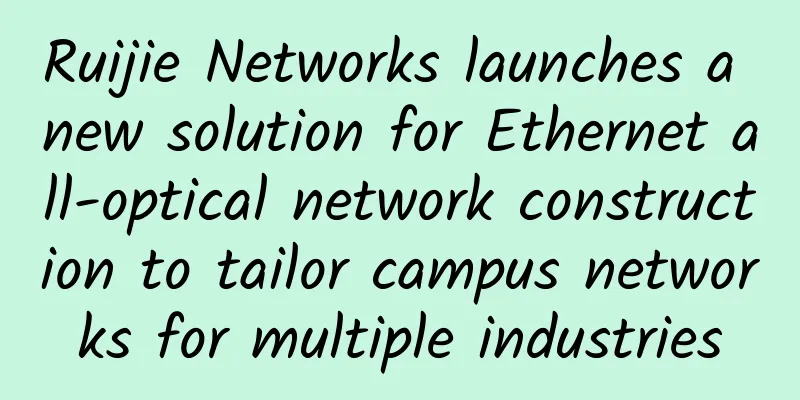7 Advantages and 4 Challenges of Hosting

|
Colocation, which involves placing IT equipment in a data center owned and operated by a third party, has proven itself in the market as businesses try to move away from the capital expenditures, ongoing costs and issues of their own data centers. While there are many advantages to managed hosting, any business looking to move to this deployment must consider both the pros and cons of managed hosting.
1. Advantages of Hosting First, let's look at the advantages. 1. Greater overall flexibility Owning your own facility has limited flexibility. It is difficult to scale up to meet growing demand, and it is also difficult to scale down when supporting a higher density of equipment or fewer workloads. A good colocation partner will allow customers to add or remove space as needed. This gives colocation customers more flexibility in planning and responding to business needs. This flexibility also allows enterprises to better plan cloud migrations - especially when it comes to public clouds. With colocation, you can expand the amount of space you can use, and you can move workloads to colocation facilities first, then move them to cloud services over time, freeing up colocation space while selling or retiring older equipment. 2. More predictable energy costs With owned facilities, it’s easy to assume that costs are reasonably predictable. However, energy costs can be unpredictable, and facilities tend to use a lot of energy in back-office areas such as cooling. With colocation facilities, owners can negotiate long-term, lower-priced agreements based on energy needs when it comes to energy costs – compared to any single end-user business. 3. Grid power availability While the facility owner is generally still responsible for the availability of the IT platform, the colocation facility owner is responsible for the availability of the facility. Because their business depends on it, they need to have the right capabilities in place, such as multiple different power supplies from different vendors and physical directions. 4. Backup power supply To provide backup power to the main grid power, colocation owners should also have adequate failover generation facilities, and they should be tested regularly to ensure they are working as expected. 5. Network availability Likewise, the hosting provider should have multiple high-bandwidth internet connections – these should be configured in the same way, with these network providers entering the facility from different points. These three redundant areas better enable IT teams to provide business continuity and support critical business workloads. 6. Facility Security Many colocation facilities have poor security, allowing large numbers of employees in and out, with few checks to manage accessibility. A good colocation facility will have strong physical security: no one can enter the facility – unless they are designated and authorized by the client, and they should carry a work ticket stating what they can do. Perimeter security will also be stronger – most colocation facilities are equipped with crash bollards to prevent thieves from trying to break into the equipment inside. 7. Third-party services A colocation environment will have many different customers within its facility. Some of these customers are colocation providers themselves. Since the entire facility is run as a single high-speed interconnected environment, customers can use these services without having to worry about data latency due to poor WAN connections. In fact, some colocation providers support high-speed interconnects to the major cloud platforms, such as through Azure ExpressRoute and AWS Direct Connect. Disadvantages of Hosting Disadvantages include: 1. Facility Improvement When you go into a colocation facility, it's very difficult for an enterprise to ask the facility owner to keep it up to current standards. It's more cost-effective for the enterprise to keep the cooling equipment and power distribution systems running as long as possible and utilize them as much as possible. With power distribution, if a customer wants to bring in ultra-dense servers that require a lot of power and the facility doesn't support this, it can become a limiting factor. 2. Service Level Agreement In a colocation service, you are just one of many customers. Facility owners will want to make their job easy by having standard agreements across as many customers as possible. It is difficult (but not impossible) for an enterprise to negotiate a custom service level agreement (SLA) for itself. Unless you are the facility owner's primary customer, you may need to pay more for custom SLAs, and you need to be prepared to monitor them yourself. 3. Access Rights Having complete control over access to a facility is a big advantage. However, it can also be a big problem. For example, suppose a major server or storage failure occurs in a customer area of the facility, and a designated engineer falls ill. It may not be possible to add another engineer to the access list with a quick phone call. The facility owner may require proof of identity, which may need to be provided before allowing that person on-site. 4. Cost Since the facility owner is primarily responsible for negotiating with suppliers, customers benefit from lower prices and predictable energy costs. However, some colocation providers may complicate matters by setting rules for customers' excessive energy use. For example, a customer signs up for a base configuration of 100 kW, then discovers that they need 110 vkW peak. Is that peak included in the agreement? Is the customer charged per kWh, or is the customer upgraded to a new rate tier that they must use until the end of the rate period? Overall, with basic due diligence and effective contract negotiation, businesses can address most of the disadvantages. The advantages will gradually outweigh the disadvantages, and those businesses that use colocation are finding that it is helping them become more efficient. |
>>: The essence of 5G is speed upgrade! Packages will become cheaper and cheaper
Recommend
Ministry of Industry and Information Technology: 4G users reached 1.296 billion, accounting for 80.9%
Recently, the Ministry of Industry and Informatio...
4.2 billion IP addresses have already been allocated, so why are we still using them?
We all know that we have an IP address when we su...
BuyVM: $3.5/month KVM-1GB/20GB/1Gbps unlimited traffic/Las Vegas data center
BuyVM Las Vegas has currently restocked a large n...
What is the difference between enterprise Wi-Fi and home Wi-Fi? | These 5 points will help you understand
With the popularity of smart terminals, people ha...
Taiwan's 5G penetration rate is expected to reach 30% by the end of this year
According to Taiwan's Electronic Times, indus...
The Evolution of Ethernet: From 10BASE-T to 40GBASE-T and Beyond
The Evolution of Ethernet: From 10BASE-T to 40GBA...
PacificRack VPS is 50% off for a limited time, 8 cores, 16G memory, 61 IPs for only $50
PacificRack is now offering a promotion for Multi...
5G commercialization has arrived, how far are 6G and the "terahertz era"?
On October 31, 2019, the three major operators an...
[11.11] LOCVPS top up 1000 yuan and get 100 yuan, Hong Kong VPS 30% off, 20% off for all
LOCVPS (Global Cloud) released a promotional plan...
Working together: Two ways Wi-Fi and 5G can coexist
WBA: Wi-Fi and 5G coexist at the physical layer o...
Combining VXLAN and EVPN
EVPN is one of the hottest network technologies i...
Five technical challenges in deploying IoT networks
Network architects and system engineers beware—ge...
A pitfall when using HTTP Client that you must avoid
Preface As software developers, we know that seem...
South Korean operator SKT invests $100 million in OpenAI competitor to develop large-scale AI models for the telecommunications industry
The trend of big AI models has reached the teleco...
One router makes all the appliances in the house smart. Huawei's ecosystem is taking over Xiaomi
At present, among China's smart home brands, ...









